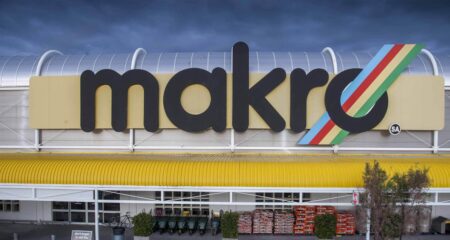
E-commerce was one bright spot in an otherwise mostly grim set of results from Walmart-owned retail group Massmart for the 2020 financial year ended 27 December.
Like Woolworths Holdings, the retailer has reported huge growth in online shopping through properties such as Game and Makro.
Although total group sales fell by 7.7% to R86.5-billion, online shopping jumped 58.6% to deliver R1.1-billion in gross merchandising value across all Massmart trading banners. While that’s still a tiny percentage of Walmart-owned Massmart’s sales, it’s clear that consumers have increasingly turned to e-commerce to avoid crowds during the Covid-19 pandemic.
“This performance was characterised by 72.9% growth in unique customers, and 69.5% increase in click-and-collect order fulfilment,” the group said.
Game’s total sales for the 52 weeks — R16.7 billion — were 15.5% lower than the December 2019 reporting period, while comparable store sales contracted by 13.2%. Lost sales from the impact of the Covid-19 lockdowns are estimated to be R900-million at Game. However, online sales increased by 77.5%, despite teething issues with an SAP S/4Hana business software system deployed in 2020.
Builders, Makro
Hardware chain Builders reported total sales of R13.9-billion, a decrease of 2.1% since December 2019, while comparable store sales declined by 2.9%. Lost sales from the pandemic and lockdowns is estimated at R1-billion at Builders. Efforts made in online fulfilment practices have been “beneficial”, however, with online sales increasing by 111%, Massmart said.
At Makro, shifting consumer patterns emerging from the lockdown led to an increase in retail customers, and a reduction in wholesale and commercial customers.
“Makro partnered with OneCart during the period, further enabling the sale and delivery of over 11 000 grocery items and 124 liquor items,” Massmart said. This contributed to online sales increasing by 40.2%.
 Massmart’s surge in online sales comes just over a week after Woolworths Holdings said it delivered a more than 58% improvement in headline earnings per share in the 26 weeks ended 27 December 2020, with the retail group benefiting, in part, from a big focus on e-commerce.
Massmart’s surge in online sales comes just over a week after Woolworths Holdings said it delivered a more than 58% improvement in headline earnings per share in the 26 weeks ended 27 December 2020, with the retail group benefiting, in part, from a big focus on e-commerce.
“Actions to stimulate trade, strengthen online capabilities and protect margins through cost containment, tight inventory management and the assistance of government support measures, resulted in a 24.6% adjusted profit before tax growth for the half,” the Johannesburg-listed group said.
Online sales at Woolworths Food leapt by 158.5% year on year, contributing 2.2% to total sales. That compares to overall sales growth of 10.9% and 9.4% in comparable stores, with net space growth of 0.4%.
Woolworths Fashion, Beauty and Home saw overall sales decline by 11.2% year on year. However, online sales jumped by 118.8%, contributing 4% to South African sales.
Woolworths’ Australian retailer David Jones reported sales down 8.8% (and by 10.5% in comparable stores). However, online sales came to the rescue, rising 55.5% and contributing 17.7% to total sales in the half-year.
Country Road, a mid-market clothing retailer, grew online sales by 52.5%, contributing a staggering 31.6% to total sales in the period.
Massmart reported a R1.8-billion loss for the full year, a marked deterioration from the R1.3-billion reported previously. However, there was an almost 50% improvement in the headline loss before restructuring and foreign exchange costs, while cash flow improved. The shares leapt higher on the results, and were trading up more than 14% at R51.08/share at midday on Monday. – © 2021 NewsCentral Media




